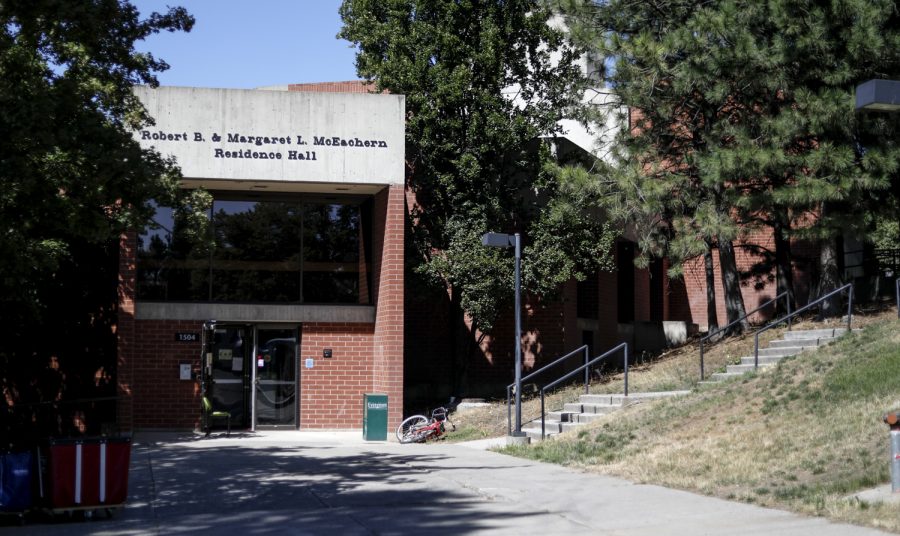Residence hall closed for student isolation
University recommends students returning from high transmission areas self-quarantine for 14 days to prevent increase of positive cases
McEachern Residence Hall is serving as a quarantine zone for students who have symptoms of COVID-19 or return from high transmission areas.
August 17, 2020
WSU designated the McEachern Residence Hall as a quarantine and isolation zone for students.
Jill Creighton, dean of students and associate vice president of student affairs, said the units are available to students who live on campus and need to isolate. They will face no extra housing charges for staying in the isolation units.
Self-quarantine involves keeping a potentially-infected individual away from others, according to the WSU Student Care website. Self-isolation separates those known to be infected with COVID-19 to protect others from exposure.
McEachern hall was chosen because the building offers the most privacy to accommodate living in isolation, she said.
“These units are different in that they have two units to a bathroom,” she said. “We want to help students have the best experience they can while doing something they quite frankly don’t want to do.”
Bathrooms will be either private or semi-private depending on the number of students needing to isolate and the building’s capacity, she said. Limited laundry services will also be available.
Food will be delivered to students living in the units three times a day through the GET app, she said. A portion of the app has been converted to provide information for meal delivery and order cutoff times.
Students will be given a list of what they should bring into their isolation, she said. The list includes items such as hand sanitizer, clothes for two to three days as well as two reusable cloth masks. The list can also be found on the student care website.
The university will determine when students can leave the isolation units based on what medical providers say is best for them, she said.
Jeff Tietjen, Community Action Center senior housing coordinator, said the additional quarantine housing will help the Pullman community prepare for a possible increase in positive cases when students return.
“Any additional housing is going to be helpful,” he said. “Everyone’s doing what they can do to prevent exposure from happening, and if it does happen, we have shelter available.”
The university recommends that students returning from a high transmission area self-quarantine in their home for 14 days, according to the website.
More information about isolating will be released when school begins, according to the WSU Housing website.
















